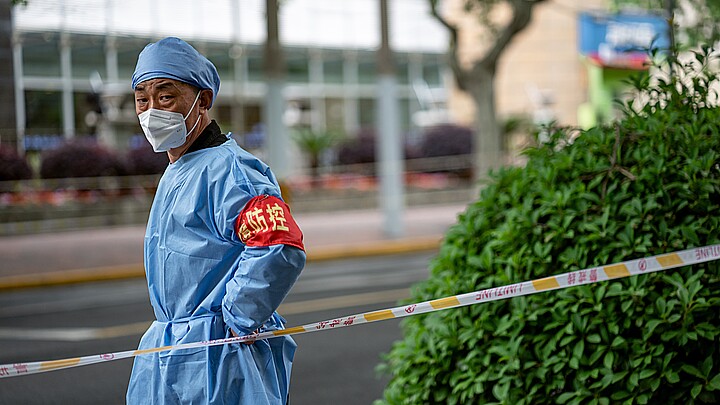Coronavirus
Chinese city demands COVID-19 test for deceased
Shenzhen was one of the hotspots of the latest outbreaks caused by the omicron variant of the coronavirus
May 27, 2022 5:41pm
Updated: May 27, 2022 6:06pm
Several media reported that the southeastern city of Shenzhen in China is requiring that the deceased from confined areas be subjected to a COVID test before being cremated.
According to the local press, when entering the funeral section of the local government's mobile app, a pop-up window appears specifying that the relatives of the deceased must provide not only their death certificate, but also a negative coronavirus test.
Local authorities confirmed the requirement, although they clarified that health personnel in the city can travel to perform an emergency test, the results of which can be obtained in about two hours, according to EFE.
When receiving corpses of people in confined areas, funeral workers had to subject them to a "detection [of COVID] and disinfection" process to avoid the risk of contagion, a funeral home worker told local media Xinmin Weekly.
The aforementioned media states that performing PCR tests on the deceased is a measure established to protect both their relatives and the funeral process workers.
Shenzhen, one of the most important cities in the country with its more than 17.5 million inhabitants, was one of the hotspots of the latest outbreaks caused by the omicron variant of the coronavirus. However, the local authorities managed to bring the outbreak under control.
China's current anti-COVID policy, commonly known as "zero COVID," allows authorities to keep its citizens under strict quarantine to prevent the further spread of the virus.
The recent extension of these measures in the city of Shanghai generated protests from the population, something uncommon under the strict communist government of the Asian giant.
Similarly, the head of the World Health Organization (WHO), Tedros Adhanom Ghebreyesus, called China's anti-COVID policy "unsustainable" on May 10.
"When we talk about the zero COVID strategy, we don't think it is sustainable considering the behavior of the virus today and what we anticipate for the future. We have discussed the issue with Chinese experts. And we have indicated to them that [zero COVID] management will not be sustainable," he said at the time.







